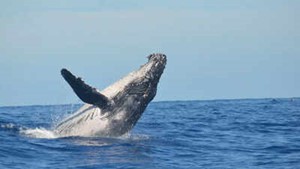Massive Earthquake Triggers Widespread Alerts
On July 30, a powerful 8.7 to 8.8 magnitude earthquake struck off Russia’s Pacific coast near the Kamchatka Peninsula, triggering tsunami warnings across the Pacific region, including Japan, the U.S. West Coast, and Pacific island nations .
Tsunami waves were measured at up to 4 meters in parts of Russia and reached 30–50 cm at multiple locations in Japan, notably Ishinomaki in northern Honshu .
As a precaution, Japanese authorities issued evacuation advisories covering about 1 million residents across 133 coastal municipalities from Hokkaido to Okinawa. Many ferry services and train routes were suspended, and Sendai airport was temporarily closed. All major nuclear facilities, including the Fukushima Daiichi plant, reported no abnormalities, though safety measures were in effect .
Unusual Marine Incident: Whales Washing Ashore
On the same morning, local authorities and media reported that four whales—believed to be large marine mammals—washed ashore at Tateyama City in Chiba Prefecture, east of Tokyo .
While some media coverage speculates a link between strandings and seismic activity, officials have noted that whale beaching likely began a day before the quake, indicating an unrelated natural or environmental cause, possibly driven by tidal currents or health issues in the animals .
Why Could Whales Strand in Tsunami Conditions?
Marine scientists explain that tsunami-related disturbances can disorient whales:
- Rapid water recedes before tsunami waves may draw whales into shallow, unfamiliar territory.
- Strong undersea currents or acoustic shockwaves from a quake can disrupt normal navigation, increasing the risk of incidental stranding .
These shifts in marine behavior have raised both ecological concerns and curiosity among researchers.
Current Status & Official Responses
- Local police confirmed the whales were first observed around July 29, before the earthquake occurred .
- Investigations are underway to assess the health and species identification of the whales, and to determine appropriate response, including whether rescue or removal protocols are applicable .
- No injuries or major infrastructure damage have been reported in Japan; authorities remain vigilant for aftershocks and later tsunami waves that could bring higher surges .
Broader Implications
Beyond the immediate human impact, the incident spotlights the complex interplay between seismic events and marine life ecology. It underscores the importance of environmental monitoring in disaster response planning, ensuring both public safety and ecological protection.
Summary Snapshot
| Incident | Details |
| Earthquake | 8.7–8.8 magnitude off Kamchatka |
| Tsunami impact in Japan | Waves of ~30–50 cm at Ishinomaki, Chiba |
| Whale grounding | Four whales found in Tateyama, Chiba |
| Likely causality | Not directly tied to earthquake |
| Human impact in Japan | No reported damage or injuries; transport disrupted |
| Ongoing action | Whale welfare assessment and tsunami vigilance in effect |
This rare combination of seismic activity and marine strandings has captivated public and scientific attention alike. While the correlation remains unclear, experts are calling for heightened awareness of how earthquakes may indirectly affect marine ecosystems.















